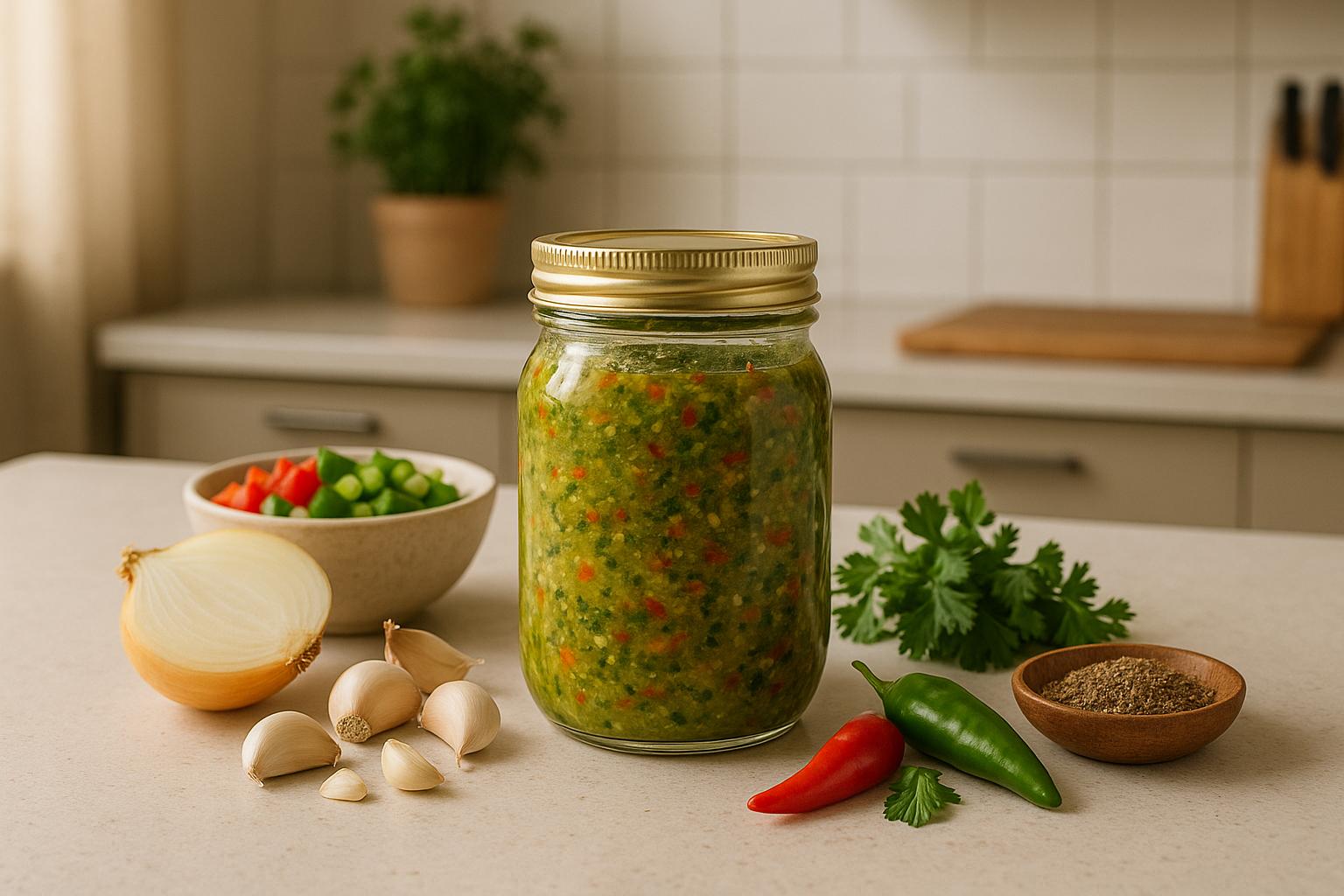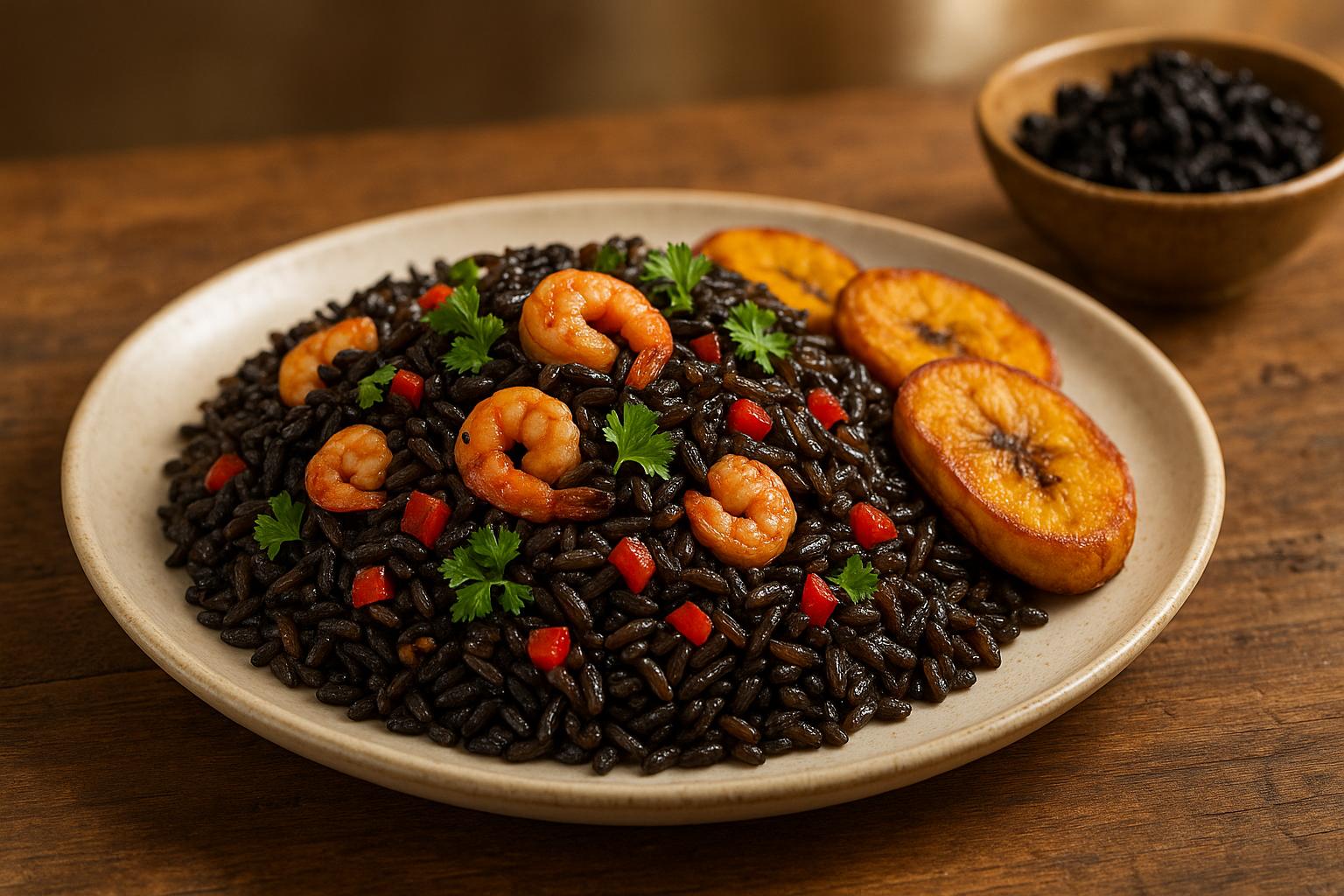Soup Joumou isn't just a seasonal dish - it’s a symbol of Haitian independence and resilience. Once forbidden to enslaved Haitians, this pumpkin-based soup became a celebration of freedom when Haiti declared independence on January 1, 1804. Today, it’s a cherished meal shared every New Year’s Day and throughout winter, offering warmth, nourishment, and a connection to history.
Key Points:
- Historical Significance: Originally reserved for French colonizers, Soup Joumou was reclaimed by Haitians as a symbol of liberty.
- UNESCO Recognition: In 2021, it was added to the Intangible Cultural Heritage of Humanity list.
- Winter Comfort: Packed with vegetables, meat, pasta, and spices, it’s a hearty, flavorful meal perfect for cold weather.
- Diaspora Connection: For Haitians worldwide, it serves as a comforting link to home, especially during isolating winters.
Whether enjoyed at home, in restaurants, or at community events, Soup Joumou represents unity, history, and warmth in every bowl.
The History Behind Soup Joumou
From Colonial Ban to National Freedom
The origins of Soup Joumou trace back to colonial Saint-Domingue, the name for Haiti during French rule starting in 1697. At that time, enslaved Africans toiled relentlessly to sustain Saint-Domingue's thriving sugar, coffee, and tobacco industries [2].
During this oppressive era, Soup Joumou became a glaring symbol of inequality. The rich, flavorful pumpkin soup was reserved exclusively for French slave owners. Enslaved people, who prepared the dish, were forbidden from tasting it. This restriction wasn't just about food - it was a calculated move by French colonizers to reinforce their dominance, deny the humanity of Black Africans, and uphold racial hierarchies [2][3].
Everything shifted on January 1, 1804, when Haiti declared its independence following a nearly 13-year-long fight for liberation that began in 1791. On that historic day, freed Haitians claimed Soup Joumou as their own, turning it into a bold symbol of freedom. Empress Dessalines is said to have served the soup to the newly liberated people, marking its transformation into a dish of celebration and unity [2].
Since then, Soup Joumou has been the centerpiece of Haiti's Independence Day, becoming the first meal shared on January 1 each year - a tradition that continues to hold deep significance [1][2][3]. The soup embodies the spirit of resistance and the reclaiming of cultural identity [2].
Over time, this powerful symbol of Haitian resilience gained recognition far beyond the country's borders.
UNESCO Recognition and Global Impact

In 2021, Soup Joumou achieved international acclaim when UNESCO added it to the Representative List of the Intangible Cultural Heritage of Humanity [1]. This moment was monumental for Haiti, as it marked the country's first entry on this prestigious list and solidified the soup's status as a cultural treasure.
UNESCO’s acknowledgment goes beyond the recipe itself. It highlights Soup Joumou as a vessel of Haitian identity, a keeper of historical memory, and a celebration of freedom and defiance. This recognition ensures that the meaning behind the soup - its connection to independence and cultural pride - will be passed down to future generations.
The global spotlight on Soup Joumou has also reignited interest in Haitian culinary traditions, emphasizing their deep historical roots. For Haitian families, this acknowledgment affirms what they’ve always known: their Independence Day meal is far more than food. It’s a testament to one of history’s most profound acts of culinary defiance and cultural reclamation.
Why Soup Joumou Works So Well in Winter
A Filling Dish for Cold Weather
When winter arrives, Haitian families turn to Soup Joumou for its comforting warmth and satisfying flavor. This traditional dish is more than just a meal - it's a hearty, nourishing way to combat the chill of the season.
The soup’s foundation comes from butternut squash or calabaza pumpkin, creating a thick and creamy base. Packed with nutrients like beta-carotene and vitamin A, it’s a perfect boost for wellness during flu season. Add in chunks of beef or goat, and you’ve got a protein-rich dish that fuels energy for those long, cold days.
What sets Soup Joumou apart is its medley of vegetables - carrots, cabbage, turnips, and malanga - all working together to deliver layers of flavor and essential nutrients. A dash of scotch bonnet pepper adds a spicy warmth, making it especially satisfying on frosty days. Unlike lighter broths, this soup is a complete meal. With its balance of starchy vegetables, lean protein, and healthy fats, it keeps you full and energized. Slow-simmering the soup for 2–3 hours not only melds the flavors but also fills the kitchen with an irresistible aroma. Beyond its physical nourishment, Soup Joumou also feeds the soul, fostering a sense of comfort and connection during the colder months.
A Solution for Loneliness and Homesickness
Soup Joumou carries a legacy of unity and resilience from Haiti’s fight for independence, and it remains a source of comfort for those far from home. For many in the Haitian diaspora, especially during the isolating winter months, this soup becomes a way to reconnect with their roots and build a sense of belonging.
In cities like New York, Boston, and Chicago, families often gather on weekends to prepare large pots of Soup Joumou. These moments go beyond cooking - they’re opportunities for elders to pass down seasoning secrets and share stories of home with younger generations. The familiar aroma, vibrant color, and rich taste bring back cherished memories, helping to ease homesickness and create warmth amidst winter’s challenges.
Community centers in places like Miami and Newark take this tradition even further by hosting soup-making events during the winter. These gatherings provide more than just a meal - they offer a chance for neighbors to connect, support one another, and ensure that everyone, especially those feeling isolated, experiences the warmth of community. Whether shared at home or in a communal setting, Soup Joumou is a reminder of togetherness and resilience in every spoonful.
How to Make Haitian Soup Joumou (Independence Soup) | Dishing It
sbb-itb-80c33ff
How to Find Real Soup Joumou
If you're craving authentic Soup Joumou, Haitian restaurants and cultural events are your best bet for experiencing this beloved dish in its true form.
Finding Haitian Restaurants
Haitian restaurants that stick to traditional recipes are a reliable way to enjoy genuine Soup Joumou. These establishments often use time-honored cooking methods that honor the dish's cultural roots.
For instance, Port-au-Prince Haitian Cuisine in Silver Spring, Maryland, serves Soup Joumou regularly. As highlighted by DCist, this restaurant is one of the few Haitian dining spots in the area and offers the soup most Sundays [4].
In South Florida, La Paix Bakery, located at 6035 Miramar Parkway in Miramar, Florida, is another great option. Their team takes pride in preparing Soup Joumou as a tribute to Haiti’s culinary heritage. Plus, they offer delivery, making it convenient to enjoy this flavorful dish [5].
If you’re looking to explore more Haitian restaurants in your area, check out HaitianFoods.org. This platform acts as a directory, connecting food lovers with authentic Haitian eateries worldwide. It also includes detailed descriptions of traditional dishes and allows restaurant owners to list their businesses, making it an excellent resource for finding Soup Joumou near you.
Beyond restaurants, cultural events provide another avenue for experiencing this iconic dish.
Community Events and Family Meals
Cultural gatherings and community celebrations often feature Soup Joumou, offering a chance to savor home-style recipes while connecting with Haitian heritage.
For example, the Boston Public Library's Mattapan Branch hosted a Haitian Independence Day event on January 4, 2024, where attendees enjoyed traditional Soup Joumou [9]. Events like these bring people together and highlight the cultural importance of the dish.
In Miami, the annual Soup & Champagne All White Affair celebrates Haitian traditions, including the preparation of authentic Soup Joumou. According to event organizers, this New Year's Day tradition symbolizes good luck and a fresh start for the year [6].
Over on the West Coast, California residents can attend events like NEGRITUDE FEST's "Liberation Through Food: The Legacy of Soup Joumou." At their July 19, 2025 gathering at Mercado La Paloma in Los Angeles, attendees not only tasted the soup but also learned about its historical significance. As The Haitian Times noted, participants had the chance to share in this meaningful tradition [7].
Libraries also play a role in preserving this heritage. The Broward County Library in Florida hosted "Bon Soup Joumou! A Haitian Flag Day Celebration" on May 17, 2025, at the Lauderhill Towne Centre Library. This event welcomed attendees of all ages to explore the story behind Soup Joumou [8].
Whether through restaurants or community events, discovering Soup Joumou is about more than just the flavors - it’s an opportunity to connect with Haitian history and culture in a truly memorable way.
Conclusion: Why Soup Joumou Remains a Winter Favorite
Soup Joumou has firmly established itself as a cherished winter tradition, blending comfort with deep historical meaning in every serving. It stands as a proud symbol of Haitian independence and the hard-fought freedom it represents, making it far more than just a meal. Few dishes carry such emotional weight, especially during the cold months when warmth and connection are most needed.
What’s more, its reach continues to expand. From Silver Spring to South Florida, more people are embracing this traditional soup, finding it to be not only a hearty winter dish but also a gateway to experiencing Haitian heritage. Its combination of rich flavors and cultural significance makes it a standout choice for those seeking something both nourishing and meaningful.
As the days grow colder, Soup Joumou brings families and communities together, offering more than just sustenance - it’s a celebration of unity, resilience, and freedom. In a season often defined by chilly isolation, this soup has a way of warming both the body and the soul, reminding us of the power of shared traditions.
FAQs
What makes Soup Joumou the perfect dish for winter?
Soup Joumou is the ultimate winter dish, packed with ingredients that warm you to the core. It features a mix of root vegetables like carrots, potatoes, and turnips, paired with cabbage and squash - often butternut or calabaza. Together, these create a rich, hearty base that’s as filling as it is nourishing.
What sets this soup apart is the blend of aromatic spices, adding layers of flavor that make every spoonful satisfying. Its cozy, hearty nature makes it perfect for chilly days, offering comfort and warmth. Beyond just a meal, it’s a dish that brings people together, celebrating resilience and togetherness during the colder months.
Why is Soup Joumou a symbol of Haitian independence and cultural pride?
Soup Joumou: A Symbol of Freedom and Unity
Soup Joumou carries profound meaning for Haitians, rooted in the nation’s history. During the colonial era, this rich, pumpkin-based soup was a luxury enjoyed only by enslavers, while enslaved people were forbidden from partaking in it. However, everything changed when Haiti declared its independence from France on January 1, 1804. From that moment, Soup Joumou became a powerful emblem of freedom, resilience, and dignity.
Today, this cherished dish is prepared and shared every New Year’s Day as a tribute to Haiti’s hard-won liberation. But it’s more than just a meal - it’s a celebration of unity and pride. Families and communities come together over bowls of Soup Joumou, honoring their shared heritage and the strength of their ancestors.
How does Soup Joumou help Haitians stay connected to their heritage during winter?
Soup Joumou is far more than just a comforting winter meal - it stands as a powerful emblem of Haitian independence and perseverance. Traditionally served on January 1st to commemorate Haiti’s liberation from slavery and colonial rule, this soup carries deep historical and emotional significance. For Haitians living abroad, preparing and sharing Soup Joumou during the winter months is a heartfelt way to honor their heritage and maintain a connection to their homeland.
Cooking and savoring this vibrant dish with family and friends not only strengthens cultural ties but also instills a profound sense of pride. It’s a flavorful celebration of unity and resilience, offering warmth and nourishment that feeds both the body and the spirit.


